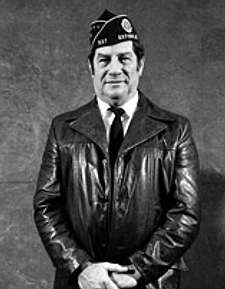 Jeg leste i går at den siste av de fire amerikanske soldatene som først så konsentrasjonsleiren Buchenwald (rett ved siden av Gøtes hjemby, Weimar) nettop døde.
Jeg leste i går at den siste av de fire amerikanske soldatene som først så konsentrasjonsleiren Buchenwald (rett ved siden av Gøtes hjemby, Weimar) nettop døde.
James Hoyt Sr. was one of the four U.S. soldiers to first find the Buchenwald concentration camp. Hoyt died Monday at his home in Oxford, Iowa, a town of about 700 people where he had lived his entire life. He was 83. His funeral was Thursday at St. Mary’s Catholic Church in Oxford, with about 100 people in attendance. …
Han fortale rett før han døde hva han opplevde i Buchenwald: «There were thousands of bodies piled high. I saw hearts that had been taken from live people in medical experiments,» Hoyt said. … «They said a wife of one of the SS officers saw a tattoo she liked on the arm of a prisoner, and had the skin made into a lampshade. I saw that.»
Det var ikke lett for ham å leve med disse minnene; slik fortalte hans familie om ham: «When the prisoners saw Jim, they picked him up and threw him in the air, that’s how happy they were after seeing such horrors. Prisoners had been hung from hooks to die. He saw a lampshade made from a prisoner’s tattoo. Jim carried those horrors with him forever. He never got what he had seen out of his mind. If you ever wondered about Jim, think about what he saw.»
Jeg var selv i Buchenwald for fire år siden, det er bl.a. derfor jeg skriver om dette. De fire bildene unde viser første selve leirområdet, ei brakke som fortsatt står igjen, den flotte utsiket fra leiren, og sist minnesmerket ett Dietrich Bonhöffer som var fengsla her før han ble henretta 9. april 1945.
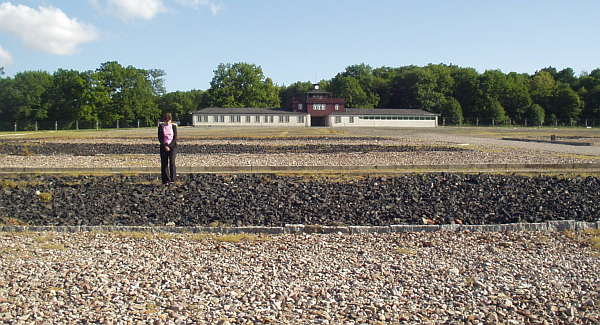
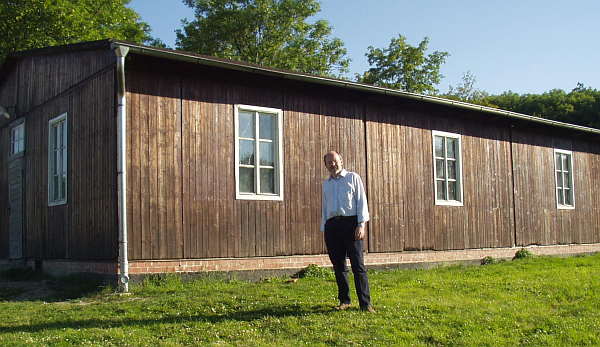
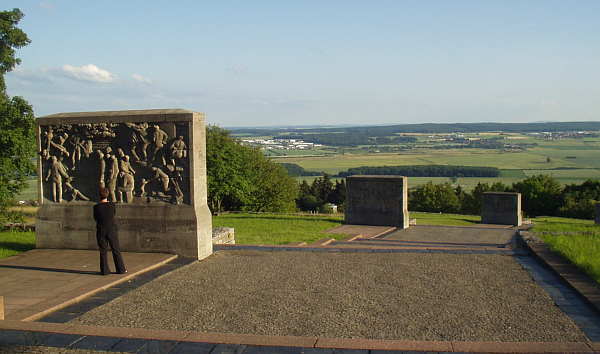
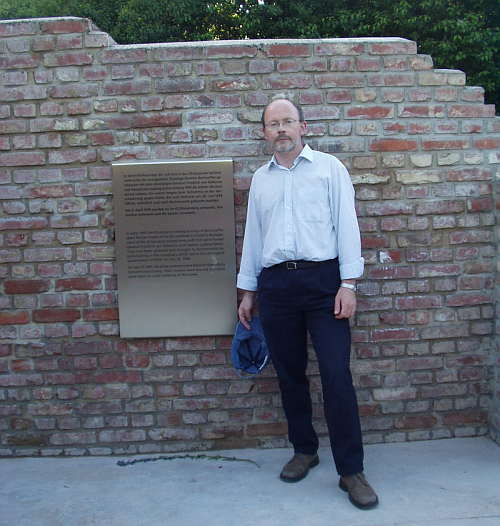
Hos CNN kan vi også lese mer, eller: «I took this side journey of about 3 km away from our main force because we kept encountering SS guards and prison inmates, and the latter told us of the large camp to the south,» Keffer wrote in a letter around the 30th anniversary of the liberation.
«We had been told by our intelligence that we might overrun a large prison camp, but we — or at least I — had no idea of either the gigantic size of the camp or of the full extent of the incredible brutality.»
Keffer and Gottschalk, who spoke German, entered the camp through a hole in an electric barbed wire fence. Hoyt and Ward initially stayed at the vehicle.
«We were tumultuously greeted by what I was told were 21,000 men, and what an incredible greeting that was,» Keffer wrote. «I was picked up by arms and legs, thrown into the air, caught, thrown again, caught, thrown, etc., until I had to stop it. I was getting dizzy.
«How the men found such a surge of strength in their emaciated condition was one of those bodily wonders in which the spirit sometimes overcomes all weaknesses of the flesh. My, but it was a great day!»
Keffer said the prisoners, through an underground system, had already taken control of the camp. The four soldiers notified division command to get medical help and food to the prisoners as soon as possible.
